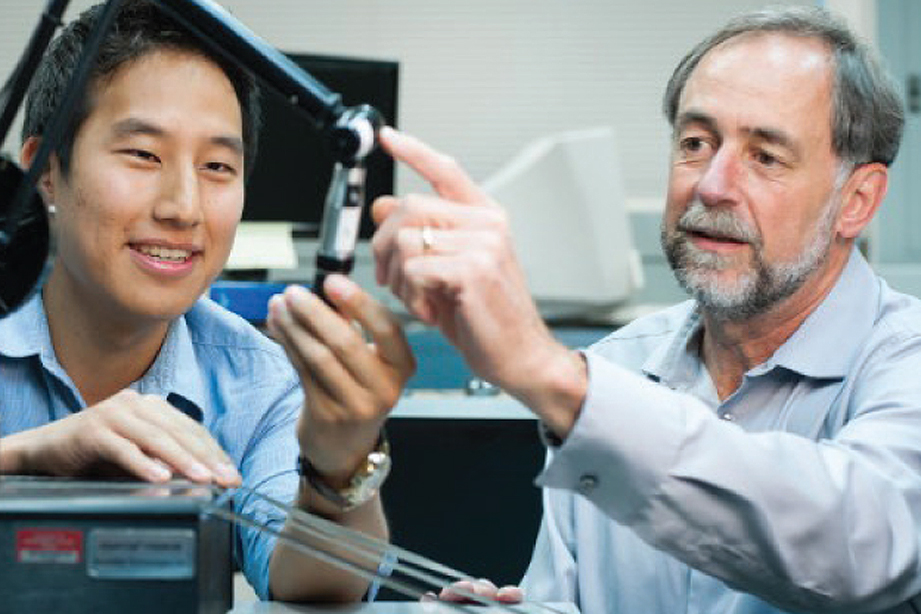Using Technology to Improve the Lives of Children with Brain-Based Disabilities
Project Category: Projects – Cycle II
July 22, 2020

Challenge
Children with neurodevelopmental disabilities and their families have specific needs that are often left unmet by services. This fact necessitates a means of collecting and providing the skills, knowledge and expertise to address their concerns.
Project Summary
The TotTech team functions as an engineering hub to provide biomedical, mechanical and computer engineering expertise that improves the lives of children with neurodevelopmental disabilities. There are two main projects under the TotTech umbrella: Functional Engagement in Assisted Therapy through Exercise Robotics (FEATHERS) and SleepSmart.
The project FEATHERS targets people who have hemiplegia where there is paralysis on one side of the body. The team created FEATHERS specifically with hemiparetic cerebral palsy and cerebral stroke in mind. Built around the myriad of available Facebook games, and embedded into social media to connect players with both the gaming community and their therapists, FEATHERS is accessible from home.
The program features a real-time software algorithm that requires people to play the game to use both hands to hold the controllers and move them in a coordinated manner. If the participant only uses their stronger hand, the cursor will not move. Typically, people with hemiplegia undergo constraint-induced movement therapy, which constrains the strong side of the body and forces only the weak side to do work. The novelty of FEATHERS is that the stronger hand is still involved in the task, but the weaker hand must be engaged as well. This robotics approach also tracks cursor movement so that it can be analyzed.
SleepSmart technology is an on-mattress sensor designed to help the 90 percent of children with brain-based disabilities that struggle with sleep. The SleepSmart design incorporates technology that can measure breathing rate, heart rate, and restlessness, as well as to detect position and movement of the sleeper. Unlike more intrusive sleep measurement methods, no sensors are placed on the body and monitoring can be done at home.
Result
The TotTech team is currently performing validation studies and are determining if both technologies can also be applied to other Kids Brain Health Network projects.
Funding
Kids Brain Health Network – $227,200
Partners – $135,410
Team
H.F. Machiel Van der Loos, University of British Columbia
Partners
Better Days Better Nights
Sunny Hill Health Centre for Children
Abilities Neurological